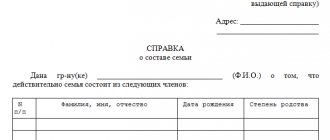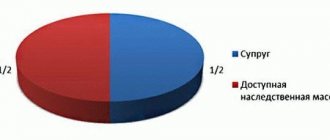General provisions
If a child support debtor dies, who pays the debt?
This question arises among recipients of funds quite often, and therefore it should be considered in more detail. The termination of alimony payments due to the death of the payer is a fact prescribed by law. Therefore, on the one hand, the heirs have nothing to worry about. However, if during his lifetime the alimony provider has arrears in payments, which often happens, then the situation changes radically.
The current legislation comprehensively protects the rights of minors, and therefore the child claims to pay the financial support debt in full. And if the debtor dies, then his debt obligations are transferred to his heirs. In jurisprudence, death is a decisive factor in changing the legal relationship between the deceased and other persons.
We can talk about:
- termination of obligations (as in the case of paying alimony);
- their occurrence (we are talking about material assistance from the state for burial);
- shifting to heirs and relatives (if the deceased has debts).
But when resolving issues related to alimony, everything turns out to be far from so simple. In practice, lawyers are not always able to accurately answer regarding the payments that are due to the recipient of funds.
Regarding Article 120 of the RF IC, termination of alimony obligations is possible in the following cases:
- when the child reaches adulthood;
- as a result of the death of one of the parties;
- ceasing to be in need or gaining the ability to work;
- adoption or adoption, when the responsibility for maintaining a minor is transferred to the new parents.
Thus, the heirs cannot be obligated to look after the child of the deceased payer, and it will not be possible to receive alimony by inheritance. Regarding debts, please refer to Article 1112 of the Civil Code. It states that inheritance means both the property and the obligations of the deceased, including debts.
Therefore, from the moment the will comes into force, the debt will be distributed among the heirs in relation to their shares and priority.
Alimony after father's death
Payment of alimony after the death of the father occurs by analogy with the situation when the alimony recipient is the mother. If the father is the recipient of alimony payments, the payer’s obligation to provide financially for the person in need ceases (Article 120 of the RF IC). Except in cases where there is arrears of alimony. Under these circumstances, the heirs may demand the debt (clause 1 of Article 1183 of the Civil Code of the Russian Federation). If the father is the collector of alimony obligations, then the right to claim payment for the maintenance of a needy family member passes to the relative’s guardian (clause 15 of the Resolution of the Plenum of the Armed Forces of the Russian Federation No. of 2021).
What to do if the debtor dies
If the alimony payer has died, the recipient of the funds should notify the bailiff in charge of the case. This is necessary in order to prevent a further increase in the amount of debt. If the alimony holder dies, then to confirm this fact, his ex-wife should have a copy of the death certificate in her hands.
The next stage is writing an application addressed to the bailiff with a request to calculate the amount of debt that arose at the time of the death of the payer.
Based on this certificate, you can go to court to collect the debt from the defendant’s heirs. Regarding Article 1175 of the Criminal Code, they are jointly and severally liable, which is directly proportional to the share they received as a result of inheritance.
The basis for a claim may be Article 1102 of the Civil Code of the Russian Federation, which deals with illegal enrichment by ignoring alimony obligations.
The following documents are usually used as evidence:
- A court order or court decision regarding alimony payments. A notarized alimony agreement is also equivalent to a writ of execution.
- Bailiff's papers, which contain information about the opening of enforcement proceedings, the amount, procedure and regularity of depositing funds, as well as the amount of the total debt that arose during the life of the payer.
- Other documents, including bank statements, certificates, receipts, receipts and checks, as well as payment orders.
Who can't count on alimony?
The same article 87 of the Family Code answers - a parent who did not take part in the upbringing, maintenance and life of children cannot receive alimony himself. Also, those who have been deprived of parental rights cannot receive child support. This means that if the father abandoned the family, did not take care of the children, and did not pay financial support, then he cannot receive alimony in the future. If such a parent nevertheless files a claim in court, then it is enough for the defendant to present to the court evidence of evasion of maintenance:
- Testimony from neighbors and relatives;
- Testimony of federal bailiffs who were involved in collection;
- Writs of execution, which indicate the amounts and terms of the debt.
As already mentioned, parents who have been deprived of their rights cannot receive child support. If you want to protect your child from the encroachments of your ex-husband on child support in the future, then try to deprive him of parental rights. Failure to pay child support for 6 months and lack of interest in your child's life are sufficient reasons for this.
How to go to court
The heirs of the alimony holder must pay off the debt. You should not wait until the recipient files a lawsuit to force the collection of funds.
In addition, due to the cessation of money flow, the accumulation of fictitious debt is possible. It can subsequently be challenged in court by providing a death certificate of the payer, but this will require a lot of time.
Therefore, it is advisable to deal with material issues immediately after entering into inheritance rights. If the heirs do not make any attempts to repay the debt, then the recipient of the funds must do the following:
- Notify the bailiff who controls payments in a particular case about the death of the payer. This will prevent the accumulation of fictitious debt.
- You should also write an application for the calculation of debts generated during the life of the alimony holder. Further payments will be made regarding this document.
- Submit an application for recovery of money to the court. The claim must indicate all the heirs of the deceased, among whom the responsibility for paying the debt will be proportionally distributed in accordance with Article 175 of the Civil Code of the Russian Federation.
In most cases, legal proceedings are initiated by the recipient of the funds. It should be remembered that the petition must be filed before the expiration of the statute of limitations, that is, no later than three years after the death of the payer.
You can also refer to Article 1102, pointing out the fact of illegal enrichment due to an outstanding alimony debt. Most often, such claims are satisfied.
Refusal of inheritance
Before receiving an inheritance, it is worth assessing the amount of debt relative to the total value of the inheritance. If the debt exceeds the value of the remaining property or if there is no inheritance as such apart from debts, then the heir may refuse to receive it.
Acceptance of such an inheritance indicates that the heir fully agrees that his responsibilities include paying the debts of the deceased. In case of disagreement with this, the heir may submit an application for refusal. The deadline for filing this application is 6 months from the date of death of the debtor.
A written refusal must be submitted only if the heir was registered at the same address as the deceased. Failure to submit such an application indicates that the heir agrees to receive the inheritance.
But if the heir is registered at a different address, then he does not need to write a refusal, because ignoring this process is a refusal to receive the inheritance.
IMPORTANT!!! After the heir officially refuses the inheritance, the question of who will pay the debts becomes closed. And if there are two or more heirs, and they have not renounced the inheritance, then it passes to them along with the obligation to pay the debts of the deceased.
What documents should be provided to the court?
By law, the full amount of debt incurred during the lifetime of the alimony recipient must be paid to the recipient.
However, in order to receive funds, it is necessary to initiate legal proceedings, providing the court with the appropriate grounds, supported by documents.
When filing a claim for debt payment in the event of the death of the payer, you must collect the following package of documents:
- The decision of the magistrate regarding the satisfaction of the claim for alimony payments. It is the basis for determining the amount of debt. If the funds were transferred not by a court decision, but on the basis of an appropriate agreement, then it must be provided.
- Legal papers that can be obtained from bailiffs. These documents confirm the existence of alimony payments.
- Statements from the recipient's bank accounts.
- Child support payment schedule.
Cases of judicial practice
Litigation regarding the recovery of funds upon the death of the payor is quite controversial and complex.
In practice, cases often arise when the defendant files an appeal due to insufficient grounds to satisfy the claim in full.
In addition to collecting the debt, plaintiffs often try to require the heirs to make monthly contributions. The latter are trying with all their efforts to prove the fact that the debt that has arisen is a property liability of the deceased and is exclusively personal in nature.
But in this case, such disputes can only delay the judicial process, without in any way affecting the final decision of the judge. The verdict will be based on the following provisions of the law:
- The heirs must pay the alimony debt that arose during the life of the testator. The material obligations themselves are canceled due to the death of the payer.
- Payments are distributed to all heirs in accordance with their turn and shares.
- Collection of alimony debt occurs through legal action.
Obligations of heirs
Despite the fact that the court is called upon to protect the interests of the child, it is impossible to predict the outcome of each such case. The law in this case is not so clear, and when rendering a verdict, the judge may reject the claim on the basis of Article 120 of the RF IC. It talks about the termination of any alimony legal relationship upon the death of a parent or child.
In accordance with this article, third parties cannot bear any obligations towards a minor.
But in most cases, the heirs are still obliged to repay the debt incurred for alimony. Any property of the defaulter can be used to pay off the debt:
- cash;
- intangible values;
- real estate (including proceeds from the sale of an apartment);
- personal belongings;
- shares and other securities;
- intellectual property, for example, rights to literary works, etc.
Alimony after the death of the claimant
In accordance with Art. 120 of the RF IC, after the death of the claimant who is the recipient of alimony, the accrual of payments stops. If the alimony recipient is the legal representative of the person entitled to security, then material support is provided until the grounds for assessment are eliminated.
For example, the guardian of a minor has died. In this case, due to limited legal capacity, the child cannot act independently. However, this does not mean that the child loses the right to receive alimony after the death of the financial recipient. In these circumstances, the appointed legal representative of the minor - a guardian, trustee or other trusted person - can act as a claimant.
IMPORTANT
The inheritance estate does not include the right to alimony (Article 1112 of the Civil Code of the Russian Federation), therefore the recipient cannot demand its implementation from the legal successors after the death of the debtor.
If the only heir of the payer is the recipient of the funds
In practice, situations often arise when, as a result of the death of the alimony recipient, all of his property passes to the recipient of the funds. What to do with debt in this case? In accordance with the law, all debt obligations will be canceled, even if the total amount of the inheritance could not cover the amount of the debt.
In fact, such a situation is quite transparent and can be clarified without any problems by any lawyer. Due to the death of the debtor and the complete transfer of his property into the possession of the recipient, there will simply be no addressee in whose name a claim can be filed demanding further collection of funds.
All child support obligations of a parent to a child automatically terminate as a result of the death of one of the parties. But alimony arrears after the death of the debtor must be repaid from his inheritance.
If disagreements arise in this area, the recipient must go to court to force the collection of funds from the heirs of the deceased.
Is it possible to collect alimony arrears if the debtor's inheritance was not accepted?
If none of the legal successors of the deceased debtor expressed their intention to enter into inheritance rights in the standard manner or in fact (clause 2 of Article 1153 of the Civil Code of the Russian Federation), then the property of the deceased is recognized as escheat (Article 1151 of the Civil Code of the Russian Federation) and is subject to transfer for use by the state.
Attention
The absence of heirs or their unwillingness to accept the property of the deceased does not mean that a relative in need of financial support loses the right to receive alimony after the death of the debtor. In this case, the authority that accepted the escheated property acts as the defendant and executor of the claims. You can obtain the necessary information from the notary who is responsible for opening the inheritance.





